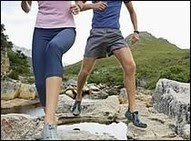

Next EPIC Webinar: The Role of Educators in Public Health Emergencies
TODAY July 25, 2018 1:00 p.m. Eastern Time
Teachers and other educators play an important role in public health emergencies. They can be a source of comfort and reassurance. They can help students and parents know what to do to stay safer and healthy during natural disasters, disease outbreaks, and other types of public health emergencies.
Please join CDC’s EPIC Team, Children’s Preparedness Unit, and Division of State and Local Readiness on Wednesday, July 25, 2018, at 1:00 p.m. Eastern Time for this discussion on the valuable communication role of educators during public health emergencies.
Information on how to connect, previous EPIC webinars, and information on CE credits can be found on the EPIC webinar website.
About Extreme Heat

Heat-related deaths and illnesses are preventable. Despite this, more than 600 people in the United States are killed by extreme heat every year.
What is Extreme Heat?
Extreme heat occurs when temperatures are much hotter than normal. Humid and muggy conditions can make it seem hotter than it really is. Because some places are hotter than others, describing the weather as extremely hot depends on what’s average for a particular location during the hottest time of the year.
What Causes Heat-Related Illness?
Heat-related illness, like heat exhaustion or heat stroke, happens when your body is not able to cool itself properly. Although the body normally cools itself by sweating, during extreme heat, sweating might not be enough. When your body isn’t fully cooled by sweating, your body temperature rises faster than your body can cool itself down. This can damage your brain and other vital organs.
Who is Most at Risk?
Older adults, the very young, and people with mental illness and chronic diseases are at highest risk. However, even young and healthy people can be affected if they take part in strenuous physical activities during hot weather.
Balance summertime activity, whether on the playing field or the construction site, with actions that help the body cool itself to prevent heat-related illness.
Tips for Preventing Heat-Related Illness
 Stay Cool
Wear the Right Clothing: Choose lightweight, light-colored, loose-fitting clothing.
Stay Cool Indoors: Stay in an air-conditioned place as much as you can. If your home does not have air conditioning, go to the shopping mall or public library. Even a few hours spent in air conditioning can help your body stay cooler when you go back into the heat.
Pace Yourself: Cut down on exercise when it's hot. If you’re not used to working or exercising in a hot environment, start slowly and pick up the pace gradually. If working or exercising in the heat makes your heart pound and leaves you gasping for breath, STOP. Get into a cool area or into the shade, and rest, especially if you become lightheaded, confused, weak, or faint.
Schedule Outdoor Activities Carefully: Try to limit your outdoor activity to when it's coolest.
Wear sunscreen: Sunburn affects your body’s ability to cool down and can make you dehydrated. If you must go outdoors, protect yourself from the sun by wearing a wide-brimmed hat and sunglasses, and by putting on sunscreen of SPF 15 or higher 30 minutes before going out, reapplying as needed.
Don't Leave Children or Pets in Cars: Never leave a child or a pet in a hot car. Cars can quickly heat up to dangerous temperatures, even with a window cracked open. While anyone left in a parked car is at risk, children and pets are especially at risk of getting a heat stroke or dying.
Avoid Hot and Heavy Meals: They add heat to your body!
|
 Stay Hydrated
Drink Plenty of Fluids: Drink more fluids, regardless of how active you are. Don't wait until you're thirsty to drink.
Stay Away from Very Sugary or Alcoholic Drinks: These actually cause you to lose more body fluid. Also, avoid very cold drinks, because they can cause stomach cramps.
Replace Salt and Minerals: Heavy sweating removes salt and minerals from the body that need to be replaced. Drink a sports drink to replace the salt and minerals you lose in sweat.
Keep Your Pets Hydrated: Give your pets plenty of fresh water, and leave the water in a shady area.
|
 Stay Informed
Check for Updates: Check your local news for extreme heat alerts and safety tips and to learn about any cooling shelters in your area.
Know the Signs: Learn the signs and symptoms of heat-related illnessesand how to treat them.
Use a Buddy System: When you work in the heat, monitor the condition of your coworkers and have someone do the same for you. Heat-related illness can cause a person to become confused or lose consciousness. If you are 65 years of age or older, have a friend or relative call to check on you twice a day during a heat wave. If you know someone 65 or older, check on them at least twice a day.
Monitor Those at High Risk: Although anyone at any time can suffer from heat-related illness, some people are at greater risk than others:
|
Visit adults at risk at least twice a day and watch them closely for signs of heat exhaustion or heat stroke. Infants and young children need much more frequent watching.
 |





















.png)









No hay comentarios:
Publicar un comentario